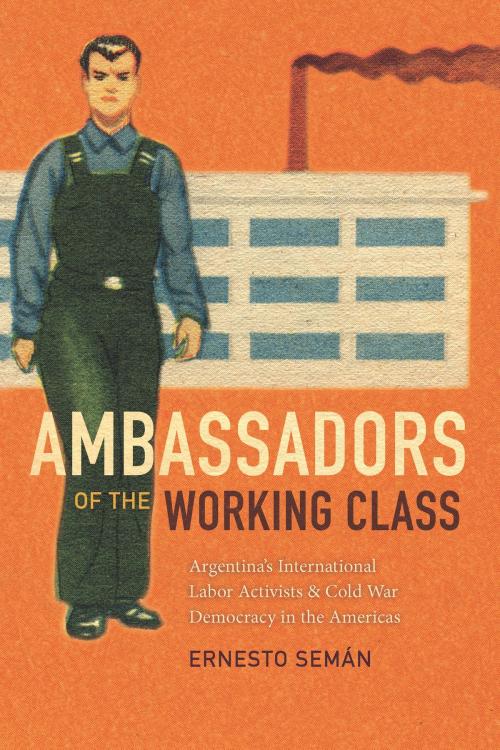Ambassadors of the Working Class
Argentina's International Labor Activists and Cold War Democracy in the Americas
Nonfiction, Social & Cultural Studies, Political Science, Politics, Labour & Industrial Relations, History, Americas, South America, Modern, 20th Century| Author: | Ernesto Semán | ISBN: | 9780822372950 |
| Publisher: | Duke University Press | Publication: | August 17, 2017 |
| Imprint: | Duke University Press Books | Language: | English |
| Author: | Ernesto Semán |
| ISBN: | 9780822372950 |
| Publisher: | Duke University Press |
| Publication: | August 17, 2017 |
| Imprint: | Duke University Press Books |
| Language: | English |
In 1946 Juan Perón launched a populist challenge to the United States, recruiting an army of labor activists to serve as worker attachés at every Argentine embassy. By 1955, over five hundred would serve, representing the largest presence of blue-collar workers in the foreign service of any country in history. A meatpacking union leader taught striking workers in Chicago about rising salaries under Perón. A railroad motorist joined the revolution in Bolivia. A baker showed Soviet workers the daily caloric intake of their Argentine counterparts. As Ambassadors of the Working Class shows, the attachés' struggle against US diplomats in Latin America turned the region into a Cold War battlefield for the hearts of the working classes. In this context, Ernesto Semán reveals, for example, how the attachés' brand of transnational populism offered Fidel Castro and Che Guevara their last chance at mass politics before their embrace of revolutionary violence. Fiercely opposed by Washington, the attachés’ project foundered, but not before US policymakers used their opposition to Peronism to rehearse arguments against the New Deal's legacies.
In 1946 Juan Perón launched a populist challenge to the United States, recruiting an army of labor activists to serve as worker attachés at every Argentine embassy. By 1955, over five hundred would serve, representing the largest presence of blue-collar workers in the foreign service of any country in history. A meatpacking union leader taught striking workers in Chicago about rising salaries under Perón. A railroad motorist joined the revolution in Bolivia. A baker showed Soviet workers the daily caloric intake of their Argentine counterparts. As Ambassadors of the Working Class shows, the attachés' struggle against US diplomats in Latin America turned the region into a Cold War battlefield for the hearts of the working classes. In this context, Ernesto Semán reveals, for example, how the attachés' brand of transnational populism offered Fidel Castro and Che Guevara their last chance at mass politics before their embrace of revolutionary violence. Fiercely opposed by Washington, the attachés’ project foundered, but not before US policymakers used their opposition to Peronism to rehearse arguments against the New Deal's legacies.















